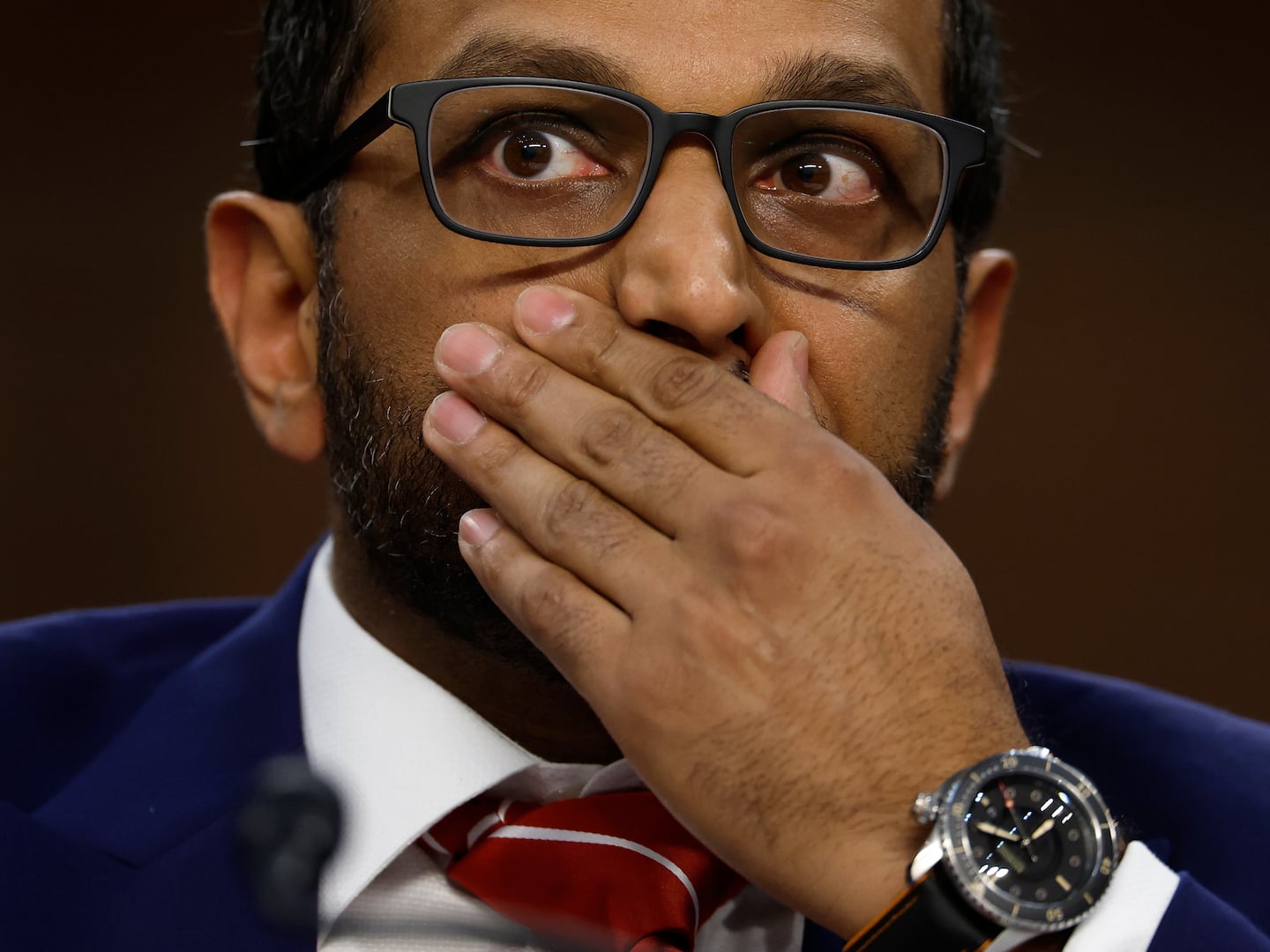
For many actors, the key to success is playing people who are likable, whom the audience can relate to—even aspire to be.
And then there is Annette Bening.
From the start of her film career more than 20 years ago, she’s been attracted to parts that are often cruel, sometimes frightening, and almost always imperfect—the diabolical French countess in Valmont who bets her lover he can seduce a wealthy, married woman; the con artist in The Grifters, who plots endlessly against the world; the overly ambitious real-estate agent in American Beauty who drives her husband to the brink; the delusional would-be poet in Running with Scissors who pawns her child off on her therapist.
“It used to be the one or the other, right? You were the ‘bad girl’ or the ‘good girl’ or the ‘bad mother’ or ‘the good mother.’”
So perhaps it’s not such a surprise that Bening, 51, will be hitting theaters this season in two more movies about complicated women making complicated choices, struggling through life and trying to figure it all out.
The first, Mother and Child, opens this Friday and tells three intersecting stories about women. One is an unmarried physical therapist (Bening) who’s spent her adult life ruing her decision to give a baby up for adoption. Another is the daughter (Naomi Watts) she’s had who becomes pregnant herself. The third (Kerry Washington) is a woman who’s looking to adopt.
“I liked the fact that [my character] was so difficult,” said Bening, sitting barefoot in her Midtown hotel room last week, while on a press tour for the film. Her hair was cut short and she was wearing little round glasses, underneath which were blue eyes that shined like sapphires. “I found her funny. I felt like she was the quiet person who’s maybe taken your parking place or something, and you go, ‘What is her problem?’ Some people are stymied. I’m almost 52 and I see this in my contemporaries—people I knew when I was younger and had certain things happen to them or they did certain things and somehow they became paralyzed, and it’s a wound that never heals, and that’s Karen.”
The second Bening film, The Kids Are All Right, which comes out in July, is a broad comedy about a lesbian couple (Bening and Julianne Moore) whose two children seek out their sperm donor.
On the surface, Bening’s character in that film seems pretty normal—“at least compared to the neurotic people I’ve played,” she said. But as we get to know her, the flaws become apparent: the way she’s unwittingly morphed into the nagging wife, the fact that she drinks a little more than she should and has an inability to listen to anyone.
“I’m not sure where that comes from,” Bening said, when asked about her predilection for difficult women. “I’m not sure I can even articulate it. When I started in the theater, I’d do plays by Shakespeare or Ibsen or Chekhov, and they all created great women’s roles. Then, as I began doing more contemporary stuff in the theater and as I started doing movies, I found that one is often playing an idea of a person, especially an idea of a woman… as I got further and further into it, I became more intrigued by and my taste tended toward people who felt more flesh and blood, with complexities and contradictions. Not idealizing women was something that I was interested in, as were writers that didn’t want to idealize women.”
She continued: “It used to be the one or the other, right? You were the ‘bad girl’ or the ‘good girl’ or the ‘bad mother’ or ‘the good mother,’ ‘the horrible businesswoman who eschewed her children’ or ‘the earth mother who was happy to be at home baking pies,’ all of that stuff that we sort of knew was a lie. And so as the narrative for women has changed, the kinds of narratives we tell about women have become more interesting.”
Bening’s colleagues, for the record, profess to be somewhat mystified about where her on-screen mean streak comes from, as they observe absolutely no evidence of it on set. “She can play a bitch on screen, but there’s no bitchy side to her that I’ve ever seen,” said Dan Jinks, who produced American Beauty. “She’s one of my favorite people I’ve ever worked with.”
“Not only is she very nice,” added Mike Nichols, who gave her a small role at the beginning of her career in Postcards From the Edge and then hired her to play Harrison Ford’s suffering wife in Regarding Henry, “she’s one of the world’s great wives and mothers. She can become many different people and she can certainly play someone diabolical because she has great wit in her expression and her ways of speaking. She’s simultaneously sexy and has a touch of ‘won’t take any shit.’ Put those things together and she can play any number of good or evil women.”
Bening’s certainly spent a long time honing her craft. Born in Kansas and raised in Southern California by conservative Republican parents—dad worked in the insurance business, mom was a church singer—she became interested in theater in junior high, moved to New York after college, and had earned her first Tony nomination at 28, for playing a free spirit in the play Coastal Disturbances.
She got her first movie part, in a 1988 John Hughes film called The Great Outdoors, and then began working almost nonstop. In 1990, she was cast as yet another tricky woman, Virginia Hill, in Bugsy, and during production, got involved with her co-star, Warren Beatty, who’d recently broken up with Madonna.
They shocked gossip columnists the world over with the news that they were expecting.
Twenty years later, they are still together, seemingly happy as clams.
Is Beatty an easy audience or a tough one?
“He is very generous to me,” said Bening, “and he is in general to people. I love that about him. He knows what to say and what not to say. He likes that I work and that I do stuff that interests me.”
She acknowledged that they aren’t always moved by the same material. “I say I’m going to go do Medea and then he says ‘Oh, you’re going to do that? OK,” she said.
Nevertheless, because of her four children, Bening has chosen her jobs somewhat more sparingly in recent years. “I don’t think it was a plan,” she said. “It just tended to end up that way. Getting out, getting away, not working, I love that. At first, when I started having babies, it happened because I was pregnant and so it had to happen, but it began to be this gift of really just disappearing in a way, not having the responsibility of a performance in a play and doing all these shows or the pressures of doing a movie. I began to see ‘Oh, this is actually quite rejuvenating.’ And then it would always come back, the desire to work, the hunger, all that. I love the craft of acting, I love learning, I love everything that comes with the new project; the whole process is totally intoxicating to me.”
One of the things that made it easy to say yes to both of her new films, Bening said, was that they were shooting in Los Angeles, near her home. But more than that, they also approached issues of parenthood, which she describes as the most important aspect of her life today. “There’s love for your parents, your family, your spouse, your partner, your friends, but the nature of the connection you have with your child, there’s nothing like it,” she said. “It has its own character and it’s so serious and so powerful, and so it’s a prism through which I see everything. It’s a way of being in the world that absolutely dominates everything.”
Jacob Bernstein is a senior reporter at The Daily Beast. Previously, he was a features writer at WWD and W Magazine. He has also written for New York magazine, Paper, and The Huffington Post.






